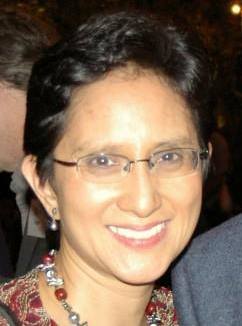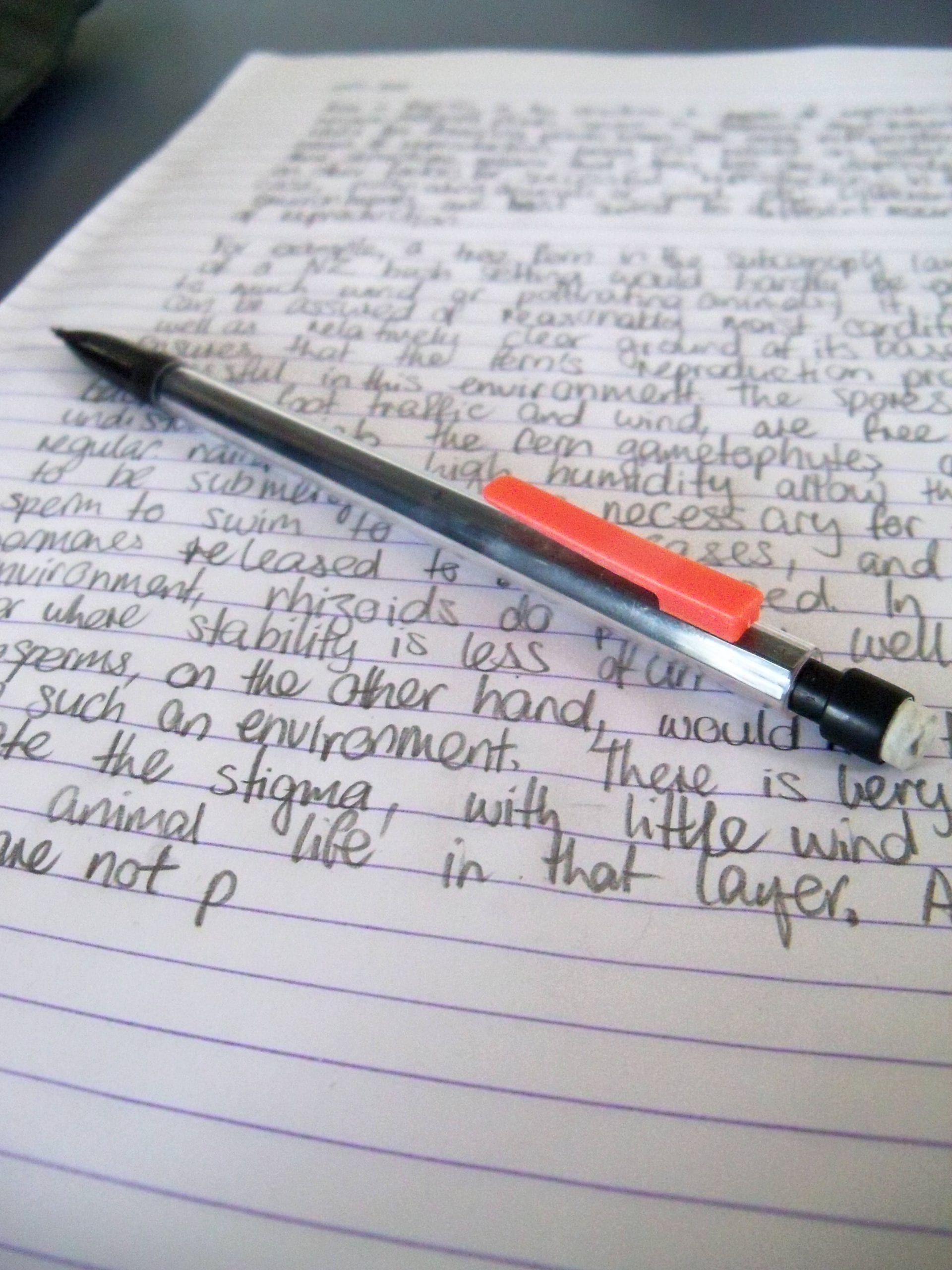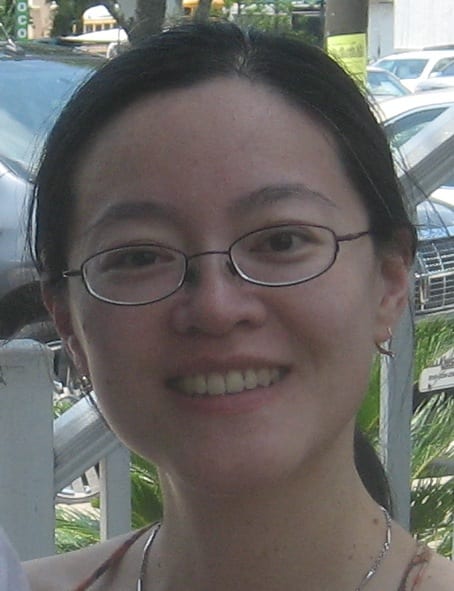By Leslie Roldan, PhD; edited by Anna Lau, PhD
 Please let me introduce Dr. Leslie Roldan, published researcher, doctorate, educator, and now published book author.* In this installment of the series, Leslie talks to us about her path to a nontraditional career that merges two seemingly disparate areas, English and Biology. We learn from her experience that pursuing a career in science does not require forsaking other interests or work-life balance. It is possible — and in her case, beneficial — to apply other skill sets to scientific endeavors and to carve a career path that gives enough breathing room to prioritize life over work when needed.
Please let me introduce Dr. Leslie Roldan, published researcher, doctorate, educator, and now published book author.* In this installment of the series, Leslie talks to us about her path to a nontraditional career that merges two seemingly disparate areas, English and Biology. We learn from her experience that pursuing a career in science does not require forsaking other interests or work-life balance. It is possible — and in her case, beneficial — to apply other skill sets to scientific endeavors and to carve a career path that gives enough breathing room to prioritize life over work when needed.
*The book, Writing in Biology: A Brief Guide, by Leslie Roldan and Mary-Lou Pardue (MIT Department of Biology) was recently published by Oxford University Press. It is part of a series of concise, discipline-specific writing guides for college students.
AL: Thank you, Leslie, for agreeing to tell us about your nontraditional career path. Let's start by having you tell us about your academic background.
LR: I have a BA in English from Stanford University, and a PhD in Biology from MIT. This combination of degrees may seem strange, but I entered college thinking I was going to be a medical doctor. So I took all the courses required for medical school and majored in English, because I love to read literature and thought college would be my last opportunity to learn how to write (I've since learned that this is not true). In my senior year of college, I hadn't decided whether to pursue an MD or PhD, so I worked for two years in a neuroscience lab before entering graduate school. For my PhD thesis, I studied how a bacterial virus integrates into the host genome. The science took a long time, but writing up the project didn't.
AL: Interests in both English and Biology… I'm interested to know how those subjects play into your career arc. Please tell us about your current position.
LR: I am a lecturer in Writing, Rhetoric, and Professional Communication (WRAP) at the Massachusetts Institute of Technology. I teach undergraduates written, oral, and visual communication in the sciences – mainly in biology because of my PhD. Beyond teaching the genres of professional communication (eg, research articles, literature reviews, oral presentations), I strive to enable students to compose and evaluate communication using a rhetorical framework—ie, with an awareness of audience, purpose, and context of the communication.
AL: What path did you take to go from earning a PhD in Biology to teaching science communications skills to undergraduates?
LR: About halfway through my graduate career, I started thinking about alternative careers that allowed me to use both my BA and PhD. My thesis advisor was very supportive; indeed, through her, I became involved in a few educational projects that led me to consider the publishing industry. After obtaining my PhD in 2001, I became a scientific editor who commissioned and edited college-level biology textbooks and essays for the web – sadly, before the advent of tablets and smartphones!
The birth of my first child made me reevaluate this job, because my activities did not fulfill me enough to justify time away from my child. I explored more careers through a series of informational interviews and decided to return to MIT to teach undergraduates.
AL: I admire that you have found a career that blends the humanities with science! In what ways do you use your humanities and scientific background in your position?

LR: My scientific background helps me understand the content of the student assignments, while my training in the humanities enables me to improve the clarity and persuasiveness of the prose or presentation. For example, many people think that scientists are only interested in the data, but everyone remembers information better when it is placed within the context of a story (eg, Archimedes' principle). So, we can improve our storytelling ability using examples we find in novels (written, oral communication) or graphic novels (visual communication).
AL: It must be satisfying to have a job that allows you to express your love of both English and Biology. Tell us what you like most about your position.
LR: There are many things I love about my job, but I'll choose three. First, the people: my students are intellectually driven and eager to learn how to communicate better; my departmental colleagues come from various backgrounds and are fundamentally interesting people. Second, the intellectual challenge: I constantly try to improve my teaching through reading, conducting studies of my students (eg, to understand the rhetorical choices students make when preparing assignments), and attending conferences on teaching communication. Indeed, I think more now about my work outside my working hours than I ever did in graduate school. Finally, the flexibility: the ability to comment on assignments on my laptop allows me to work wherever and whenever I need to, even during my kids' extracurricular activities.
AL: Anything you dislike about your position?
LR: What do I dislike? Although I am fortunate to have a full-time position with some security (my contract is renewable every five years), it wouldn't hurt to be paid more. (Just kidding.)
AL: Yes, many would agree that most educators are not paid as well as they should be, given how hard they work. Tell us what your typical day is like.
LR: I have a full teaching load, which means I teach a section of 10-15 students in four classes – so, 40-60 students a semester. My major activities are meeting with students (in class or individually), commenting on student assignments, and preparing instructional materials such as lectures and exercises. I do not teach from a textbook, but use examples from the primary literature to illustrate principles drawn from a number of sources (eg, Michael Alley for scientific communication, John Williams for style). The course syllabus is typically developed by the technical faculty, but I work closely with the faculty to make sure the assignments are central genres in the profession, and that the assignments are scaffolded so that students receive sufficient instruction and feedback at multiple stages.
AL: What professional or academic advice do you have to share with students who are interested in pursuing this career path?
LR: I'm unsure how to answer this question because my colleagues' backgrounds vary so much. Some, like me, have graduate degrees in a STEM field while others have graduate degrees in composition and rhetoric. Still some come in with industry experience in technical writing. What we have in common is a desire to teach scientific and technical communication, but I do find myself trying to learn rhetoric on the side.
AL: Are positions like yours common?
LR: I don't think my position at MIT is common. MIT has dedicated communication lecturers embedded in various disciplines. At other schools, scientific and technical communication are typically taught through the English department, or by the technical faculty themselves. I believe communication will continue to be an important skill to teach, but the format (eg, lectures, individual conferences, feedback on assignments) may change as instructors integrate new technologies into their teaching.
AL: Thank you so much for sharing all of this information. Do you have any closing thoughts?
LR: First, “do what you love†seems like a cliché, but I think it's more reasonable when you keep in mind that what you love can change over time – and that's okay. Priorities and financial commitments may also change over time, but you will generally spend half of your waking hours at your job. So try your best to find something that you love – in my case, something that engages me intellectually.
Second, be open-minded but realistic. Take advantage of informational interviews: people are very happy to talk honestly about what they do when there isn't a job on the line. When they answer your question about a typical day, ask yourself: can you really see yourself doing that? And the things that they dislike about the job: how much would they bother you?
Finally, never underestimate your skill set. For example, graduate students develop analytical skills that are highly prized in many professions, not just the sciences.
~~~~~
For more info about Dr. Roldan's line of work, please refer to the following:
Writing, Rhetoric, and Professional Communication: http://cmsw.mit.edu/education/writing-rhetoric-professional-communication/
Writing Across the Curriculum: http://wac.colostate.edu/intro/
The Craft of Scientific Writing and The Craft of Scientific Presentations by Michael Alley
Slide:ology by Nancy Duarte
Visual Strategies by Felice Frankel and Angela DePace
Style: Lessons in Clarity and Grace by Joseph Williams
A Short Guide to Writing in Biology by Jan Pechenik
About the Author
 Anna Lau loves everything science, medicine, and art. When she's not at her day job as a medical writer, she can be found in her kitchen whipping up a sweet treat or outside trying to keep up with her critters. The perfect vacation for Anna would involve a state or national park, a museum, and yummy food. More from Anna Lau. Anna Lau loves everything science, medicine, and art. When she's not at her day job as a medical writer, she can be found in her kitchen whipping up a sweet treat or outside trying to keep up with her critters. The perfect vacation for Anna would involve a state or national park, a museum, and yummy food. More from Anna Lau. |
About the Author
- athenssciencecafehttps://athensscienceobserver.com/author/athenssciencecafe/April 17, 2020
- athenssciencecafehttps://athensscienceobserver.com/author/athenssciencecafe/April 12, 2020
- athenssciencecafehttps://athensscienceobserver.com/author/athenssciencecafe/April 3, 2020
- athenssciencecafehttps://athensscienceobserver.com/author/athenssciencecafe/March 30, 2020







